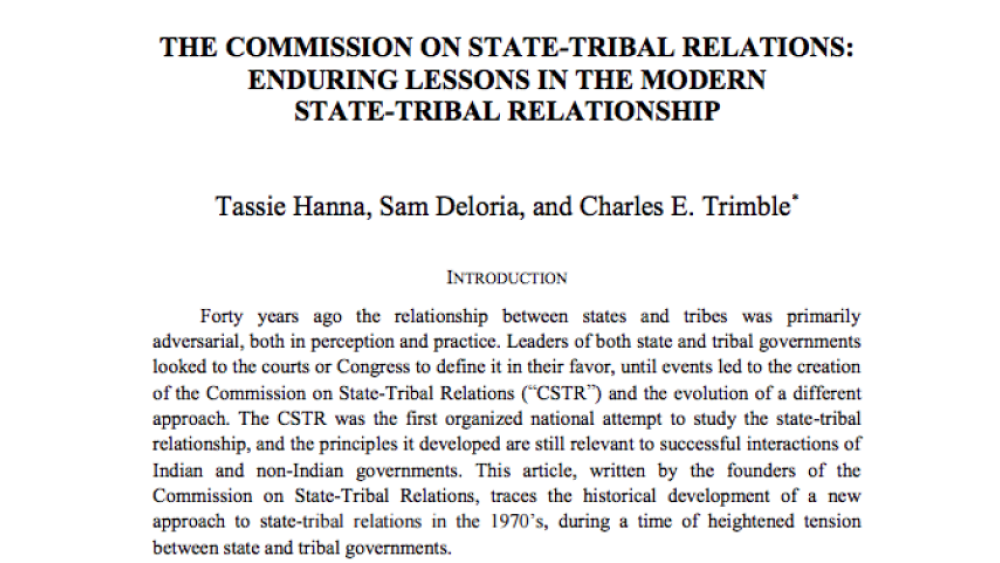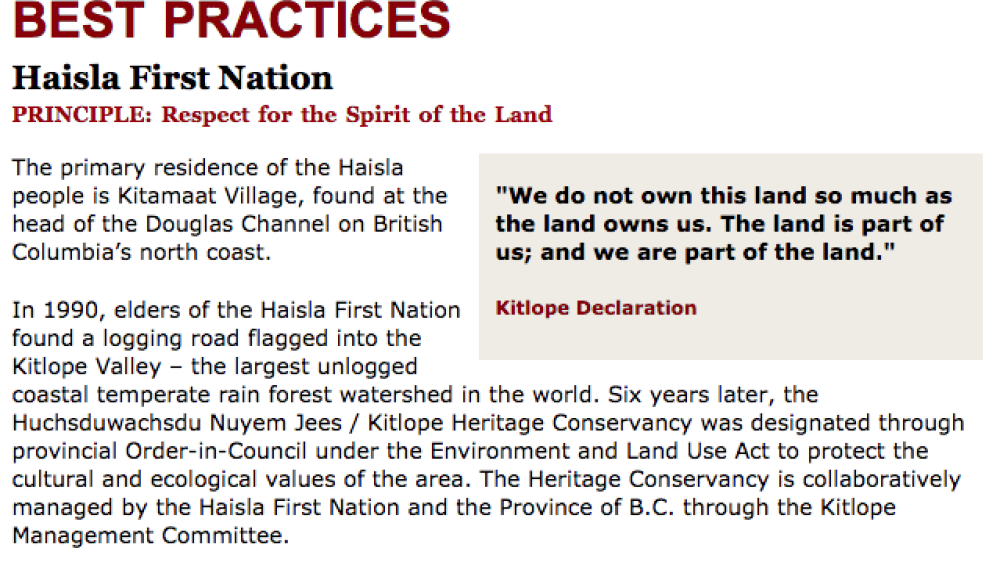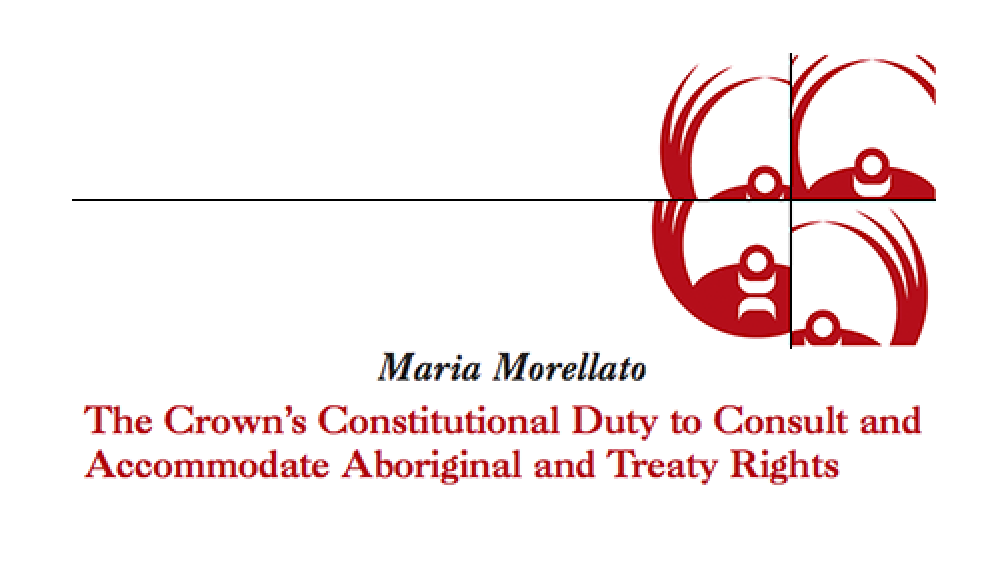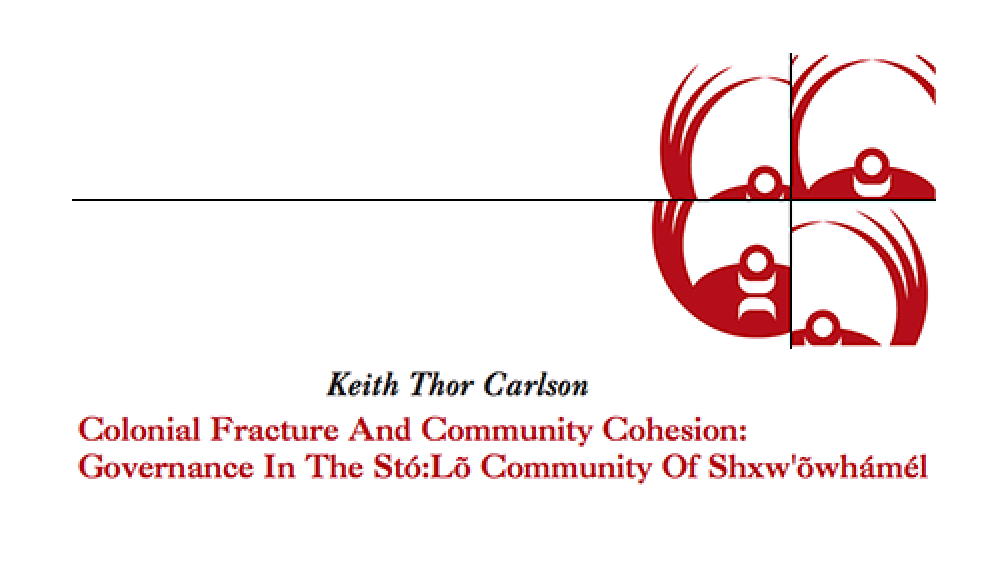Indigenous Governance Database
Intergovernmental Relations

The Commission on State-Tribal Relations: Enduring Lessons in the Modern State-Tribal Relationship
(From the article introduction) Forty years ago the relationship between state and tribes was primarily adversarial, both in perception and practice. Leaders of both state and tribal governments looked to the courts or Congress to define it in their favor, until events led to the creation of the…

Best Practices Case Study (Respect the Spirit in the Land): Haisla First Nation
The primary residence of the Haisla people is Kitamaat Village, found at the head of the Douglas Channel on British Columbia's north coast. In 1990, elders of the Haisla First Nation found a logging road flagged into the Kitlope Valley -- the largest unlogged coastal temperate rainforest watershed…

Native American Lands and Natural Resource Development
The rules that govern oil, gas and mining on American Indian tribal lands are complex, and the tribes that seek economic development through natural resources face a range of challenges. In this report, Revenue Watch gives an overview of the issues and describes current approaches to natural…

The Governance and Fiscal Environment of First Nations' Fiscal Intergovernmental Relations in Comparative Perspectives
This paper examines the Canadian Aboriginal fiscal inter-governmental system by comparing it to other countries, and also focuses on the key characteristics of the Canadian system. Over the last 20 years governments have decentralized power and responsibilities in response to an increasingly…

The Crown's Constitutional Duty to Consult and Accomodate Aboriginal and Treaty Rights
The Crown’s duty to consult and accommodate Aboriginal and treaty rights is a fundamental matter of social justice that invokes very solemn legal obligations. Reconciliation and win-win situations can be achieved with good faith negotiations if the federal and provincial Crown immediately…

Colonial Fracture And Community Cohesion: Governance In The Stó:Lõ Community Of Shxw'õwhámél
This paper has three goals: 1) To briefly outline the process through which Shxw’õwhámél came to adopt the Siyá:m System in 1994; 2) to highlight certain concerns about the limitations of that system as articulated by community members in 2006; and 3) to provide a detailed discussion of those…
Pagination
- First page
- Previous page
- …
- 5
- 6
- 7
- 8
- 9
- 10
- 11
- 12
- 13
